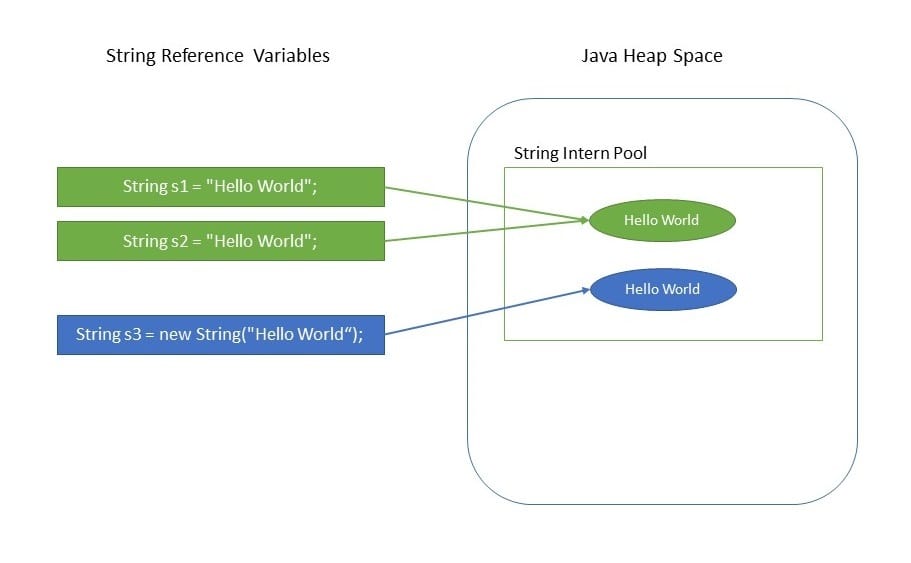What Is Immutable Strings and Exactly How It Works
In the realm of programs, recognizing the idea of unalterable strings is extremely important for producing protected and robust applications. Immutable strings refer to strings that can not be changed after they are developed, ensuring information stability and predictability within the code. This fundamental principle plays a crucial function in different programs languages and offers a special strategy to dealing with data. By discovering the details of exactly how immutable strings work, one can reveal a globe of advantages and opportunities that can boost the top quality and performance of software program development.
The Fundamentals of Immutable Strings
Immutable strings, as an essential concept in programming, are personality series that can not be changed as soon as they are developed. This means that when a string is appointed a value, that worth can not be altered. In languages like Python and Java, strings are immutable items, causing various implications in regards to memory monitoring and information honesty.
One of the essential benefits of immutable strings is that they supply a sense of protection in information adjustment. Given that the material of an immutable string can not be customized, it makes certain that the original data remains undamaged, reducing the risk of unintentional changes throughout program implementation (Why are strings immutable in Java?). This home additionally simplifies debugging processes, as developers can trust that when a string is specified, its worth will not be unintentionally changed
When a brand-new string is created based on an existing one, instead than customizing the initial string, the brand-new worth is stored independently. Overall, recognizing the fundamentals of unalterable strings is essential for mastering programs ideas and optimizing code effectiveness.
Benefits of Unalterable Strings
Building upon the protection and performance advantages of unalterable strings, their benefits prolong to boosting code integrity and streamlining concurrent shows tasks. By being immutable, strings can not be changed after development, which removes the danger of unexpected modifications in the information they store. This fundamental immutability ensures that when a string is produced, its worth remains constant throughout the program's execution, minimizing the opportunities of pests triggered by unanticipated changes.
Additionally, immutable strings add to code dependability by making it easier to reason regarding the state of a program. Given that strings can not be transformed, programmers can trust that a string will certainly constantly hold the exact same value, streamlining debugging and maintenance efforts. This predictability results in much more secure and reputable codebases.

Implementation in Shows Languages
Within different programming languages, the consolidation of immutable official site strings is a basic facet that affects how data is dealt with and adjusted within code structures. The implementation of immutable strings varies throughout different programming languages, with each language offering its own systems to sustain this concept.

On the other hand, languages like C and C++ do not have integrated assistance for immutable strings. Programmers in these languages should manually execute immutability by enforcing regulations within their code to protect against straight adjustments to string items.
Ideal Practices for Collaborating With Unalterable Strings
When handling immutable strings in programming languages like Java and Python, adhering to best methods makes sure secure and effective data adjustment. Among the crucial best practices is to utilize StringBuilder or StringBuffer as opposed to straight manipulating strings, particularly when managing extensive concatenation procedures. These courses give mutable alternatives for string manipulation, helping to stay clear of unnecessary memory browse around this site allotments and boosting efficiency.
In addition, when working with delicate information such as passwords or API tricks, it is critical to stay clear of keeping them as ordinary message in unalterable strings. Utilizing safe storage space devices like char selections or specialized collections for handling delicate details aids alleviate safety risks connected with unalterable strings.
Real-world Applications and Instances
Checking out practical executions of unalterable strings in different industries exposes their considerable impact on information integrity and system reliability. In the health care sector, immutable strings play a crucial function in ensuring the safety and security and confidentiality of patient data. By avoiding unapproved alterations to sensitive information such as clinical records and prescriptions, immutable strings assist maintain conformity with stringent personal privacy policies like HIPAA.
Monetary establishments likewise gain from the immutable nature of strings to boost the protection of client data and purchase documents. Unalterable strings help avoid fraud and unauthorized modifications to economic info, providing a robust defense against cyber hazards and ensuring the trust fund and self-confidence of clients.

Verdict
Ideal methods for functioning with unalterable strings include avoiding direct alterations and making use of techniques that return brand-new string things. Real-world applications of unalterable strings consist of information security, caching, and string manipulation tasks.
Unalterable strings refer to strings that can not be modified after they are created, making certain information honesty and predictability within the code. When a brand-new string is produced based on an existing one, rather than customizing the initial string, the brand-new value is saved individually.In languages like Java and Python, strings are unalterable by default, meaning that when a string object is produced, its value can not be transformed - Why are strings immutable in Java?. Ideal methods for functioning with immutable strings include avoiding direct modifications and making use of techniques that return brand-new string things. Real-world applications of immutable strings include data encryption, caching, and string adjustment useful reference jobs